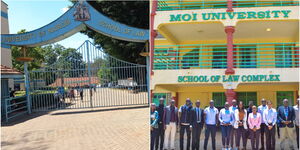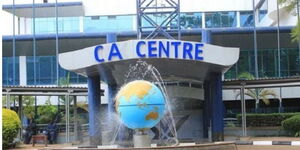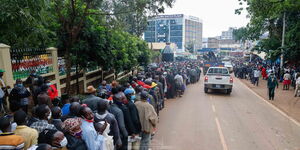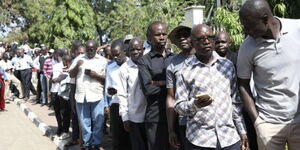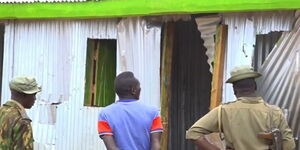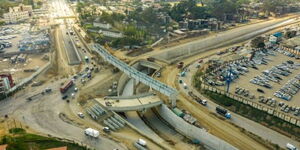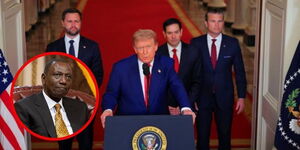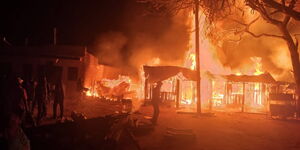Musya Kisilu, had you asked him, would never have imagined himself the star of an award-winning film.
A smallholder farmer from Kitui, he was catapulted from obscurity to the voice on matters climate change in an unlikely sequence of events.
Kisilu's uncanny journey began in 2011 when he invited two Norweigan university students to stay at his home in Ndatani Village.
The 50-year old farmer was then struggling against the ravages of drought on his farm when he met Julia Dahr and Julie Lillesaeter, who were part of a three-month exchange program between Kenya and Norway.
According to Julia, they had interviewed many farmers in rural Mutomo before they settled on Kisilu, a father of nine, whose authenticity and eloquence tipped the scales in his favor.
It was that short-lunch hour meeting in 2011 that would culminate, five years later in an award-winning documentary, Thank You for the Rain.
The documentary, which centers around Kisilu, maps his journey as he struggles against climate change that threatens his existence.
As Julia explained it, they followed the farmer for five years as he went about his daily activities, trying to keep things as organic as possible.
"We followed Mr Kisilu for five years filming different seasons and how his farm crops performed. It was a tedious project because we literally walked his journey of trying to overcome the frustrations of erratic weather patterns in Kitui County," states Julia.
As the film develops, the audience is taken through a period of a prolonged drought that forces the children to drop out of school for lack of fees.
It also captures the arresting contrast of this and the violent storm that damaged his mud house by blowing away the roof.
Kisilu cites this irony in a statement captured in the film, “The other season we were crying no rain, no rain, no rain. Now we are talking of floods. Everything is being contradicted."
The film captured international attention when it was released in 2017. It has been the recipient of 17 global awards including Best Film on Sustainable Development Award in 2018 and the Wright Film Prize in 2019.
Even before the film was released in 2017, Kisilu was invited to address world leaders at the UN Conference of Parties (COP 21). After the film's release, he was invited again to speak at COP 23 in Bonn Germany.
Addressing his unlikely overtures into the film world, Kisilu reminisces on his meeting with Julia, "I had never met a filmmaker before I met Julia and never even seen a full film as I live in a remote village with no electricity. It was very interesting to see Julia’s way of working and how she thought my community’s story was so important to the world,”
Kisilu's visibility has improved the lives of those in his small community as several partners came together to provide climate-smart agricultural practices to shield them from the effects of climate change.
The film has also raised funds that went into building the Kyambusya Earth Dam which now enables irrigation in the area.

